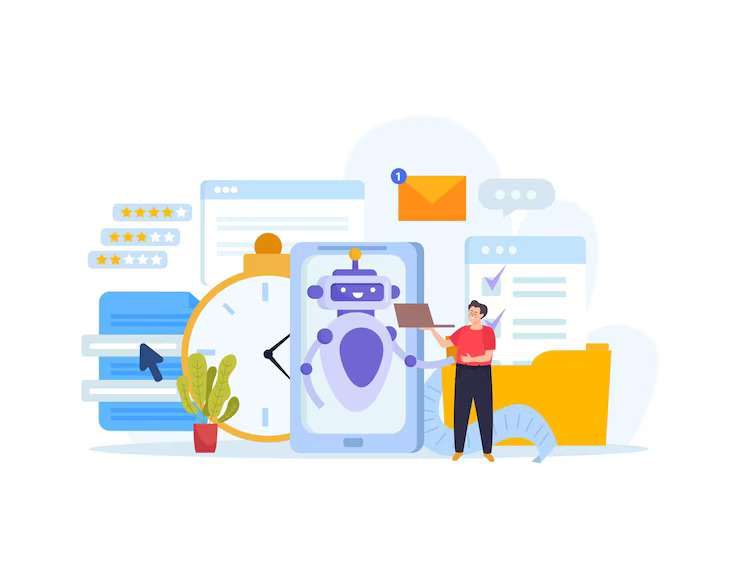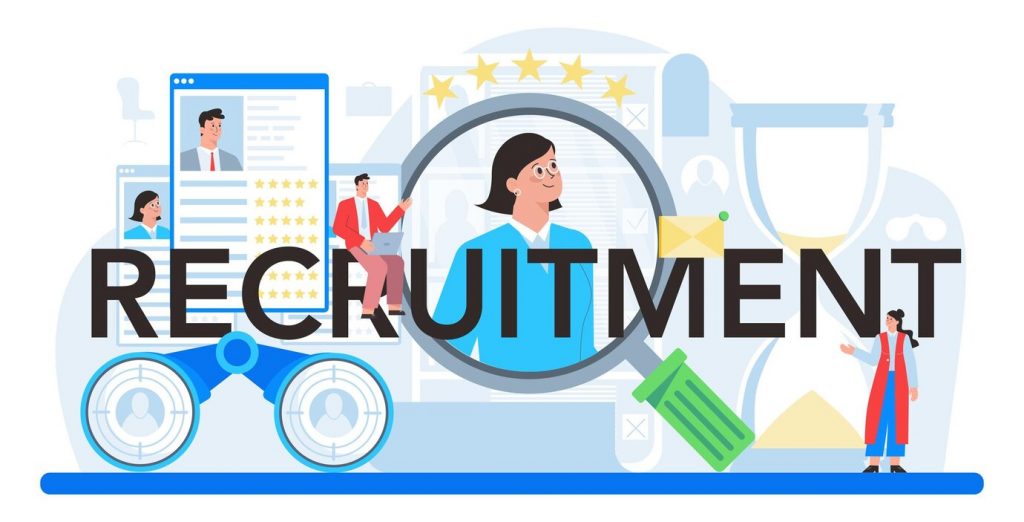AI is Reshaping the Interview Room
In 2025, the hiring landscape is being radically reshaped by artificial intelligence. What was once a linear and human-heavy process is now a tech-enabled workflow—streamlined, data-driven, and globally scalable. Traditional interviews, with all their inefficiencies and inconsistencies, are rapidly being replaced by AI-powered systems that can assess, analyze, and assist at scale.
The global HR tech market is projected to reach $76.5 billion by 2030, according to Grand View Research, and AI-driven recruitment solutions are leading this surge. Specifically, AI interview platforms have emerged as the new cornerstone of efficient hiring, offering companies the ability to assess candidates objectively, predict future performance, and reduce hiring cycles by weeks.
In this blog, we’ll explore why AI interview platforms are no longer optional in 2025, the core features to prioritize, and how JobTwine is setting the benchmark in intelligent, enterprise-grade hiring technology.
Also Read: Top Trends Shaping Interview as a Service in 2025 & Beyond
Why AI Interview Platforms Are the Future
The modern hiring mandate is speed, scale, and objectivity—and AI delivers on all three. Traditional hiring practices struggle to meet the demands of today’s hyper-competitive talent market, where top candidates are often off the market within 10 days of beginning their job search. AI allows recruiters to act faster and smarter.
For employers, AI interview platforms eliminate bottlenecks in screening, reduce manual workload, and generate predictive insights. For candidates, these tools offer greater scheduling flexibility, faster feedback loops, and a more consistent evaluation experience.
Recent research from LinkedIn shows that 65% of recruiters now use AI tools to evaluate resumes, conduct video interviews, or score assessments. That number is projected to reach 85% by the end of 2026. AI’s impact is particularly evident in three 2025 trends:
- AI-Powered Video Interviews: Platforms analyze tone, clarity, and engagement during pre-recorded or live interviews.
- Chatbot-Based Screening: Conversational AI now handles over 30% of candidate outreach and vetting.
- Automated Skills Assessments: Gamified or challenge-based assessments powered by AI increase accuracy and reduce candidate drop-off by 22%.
AI platforms don’t just improve process efficiency—they fundamentally rewire how hiring teams think about talent evaluation.
Also Read: How Interview as a Service Saves Time and Costs in Recruitment
Key Features to Look for in an AI Interview Platform
Not all AI interview platforms are created equal. While many tools boast automation, the real value lies in the depth of intelligence, integration capability, and customizability. Here are the key capabilities that distinguish high-performing AI hiring platforms in 2025:
1. AI-Driven Candidate Assessment
Leading platforms leverage machine learning to assess technical and soft skills, predict job success, and detect behavioral patterns. These assessments are increasingly personalized—tailored to specific roles and industries—using large datasets that benchmark candidate responses against high performers.
JobTwine, for instance, uses proprietary AI models trained on millions of anonymized data points to deliver real-time scoring on competencies like collaboration, adaptability, and leadership. Employers receive a granular breakdown that aids in nuanced decision-making.
2. Automated Scheduling & AI Chatbots
Recruiters lose up to 30% of their week just coordinating interviews. AI scheduling tools now handle availability syncing, timezone management, and candidate follow-ups. Integrated chatbots guide applicants through next steps, answer FAQs, and maintain engagement.
With JobTwine’s integrated scheduling assistant, enterprise clients have seen a 38% decrease in time-to-interview, improving both recruiter productivity and candidate experience.
3. Interview Intelligence: Beyond the Transcript
Video interviews now offer more than just a replay button. Sentiment analysis, tone detection, and even facial recognition (opt-in only) are being used to provide context-rich insights. Platforms are beginning to assess not just what was said—but how it was said.
JobTwine’s interview intelligence suite includes real-time analytics that help hiring teams identify enthusiasm, confidence, and stress indicators—factors that are often predictive of performance in high-pressure roles.
4. Integration with ATS and HR Tools
Seamless integration with existing HR infrastructure is no longer a bonus—it’s table stakes. The best platforms offer API-driven sync with systems like Workday, Lever, BambooHR, and Greenhouse, ensuring data flows freely across the hiring funnel.
JobTwine integrates natively with over 40 HRIS and ATS platforms, making it ideal for large teams managing high-volume recruitment pipelines.
5. Customizable Interview Workflows
Modern hiring is not one-size-fits-all. Companies need interview paths tailored to role types, departments, and seniority levels. Custom workflows—like multi-stage engineering assessments or asynchronous leadership panels—are now a baseline expectation.
JobTwine’s workflow builder allows teams to design dynamic hiring journeys from a drag-and-drop interface, enabling consistent experiences without losing personalization.
Also Read: How Interview as a Service Can Improve Candidate Experience
Top AI Interview Platforms in 2025: A Strategic Comparison
While the market is crowded with solutions, few offer both enterprise-grade functionality and forward-thinking innovation. Here’s a snapshot of top players as of 2025:
|
Platform |
Key Features |
Best For |
|---|---|---|
|
JobTwine |
Real-time analytics, workflow automation, ATS sync |
Large enterprises, AI-led hiring |
|
BarRaiser |
AI video interviews, candidate scoring |
Process-focused recruitment |
|
myInterview |
Personality insights, asynchronous interviews |
Startups and lean teams |
|
BrightHire |
Soft skills assessments, structured interviews |
High-volume hiring but fragment |
|
InterviewVector |
Predictive analytics, campus hiring support |
Universities, entry-level roles |
In competitive enterprise environments, JobTwine stands out by offering deep analytics, cross-functional integrations, and fully customizable workflows built for global scale. Unlike lightweight platforms, it’s designed not just to support interviews—but to transform them into strategic decision-making tools.
AI Interview Platforms: Pros, Cons & Considerations
AI tools unlock significant advantages, but they’re not without challenges. Leaders need to assess both the strategic upside and the risks associated with automation.
Pros:
- Speed: AI reduces time-to-hire by up to 40%, accelerating growth initiatives.
- Consistency: Objective scoring eliminates interviewer subjectivity.
- Scalability: Platforms like JobTwine can run thousands of interviews simultaneously, ensuring consistency across teams and geographies.
Cons:
- Bias in Training Data: AI systems must be constantly audited to prevent historical bias from creeping into automated decisions.
- Candidate Perception: Some candidates report feeling disconnected in fully asynchronous workflows.
- Privacy and Compliance: Ethical use of AI requires rigorous adherence to local data privacy laws like GDPR and EEOC guidelines.
Companies must strike a balance between automation and human touch. For most, this means using AI to empower—not replace—recruiters.
Also Read: Interview as a Service vs. AI Chatbot Recruiting: Key Differences & Benefits
Final Thoughts & The Road Ahead
AI interview platforms are no longer just nice-to-have—they’re now strategic infrastructure. In 2025, companies that invest in intelligent, scalable hiring tools are gaining a measurable edge in both talent acquisition and employer branding.
JobTwine is built with this future in mind. It’s not just a tool—it’s an intelligence layer over your entire hiring process. From automating the mundane to surfacing high-potential candidates, JobTwine enables enterprises to hire at scale without losing precision.
As we look toward 2026 and beyond, the next wave of innovation will likely include adaptive AI that evolves based on hiring outcomes, real-time benchmarking against industry cohorts, and even AI coaching for interviewers to improve candidate interactions. In that world, platforms like JobTwine won’t just support hiring—they’ll help define what excellence in hiring looks like.
Frequently Asked Questions:
1. What makes an AI interview platform effective in 2025?
An effective platform combines real-time analytics, intelligent candidate scoring, seamless integrations, and customizable workflows. Platforms like JobTwine offer all these elements within a single ecosystem.
2. Is it safe and legal to use AI in interviews?
Yes, provided the platform complies with regional regulations such as GDPR and EEOC. JobTwine is built with data privacy and fairness at its core, including audit trails and transparent AI decision models.
3. Can AI truly reduce bias in hiring?
Yes—but only when the models are trained on diverse datasets and regularly audited. JobTwine includes fairness monitoring tools that flag potential bias before decisions are made.
4. How do candidates feel about AI-led interviews?
According to SHRM, 72% of candidates are open to AI-assisted interviews, especially when it results in faster decisions and more flexibility. Clear communication and transparency are key to candidate comfort.
5. What kind of companies benefit most from JobTwine?
JobTwine is ideal for large enterprises or high-growth companies that need scalable, intelligent hiring systems with deep customization and analytics capabilities.




